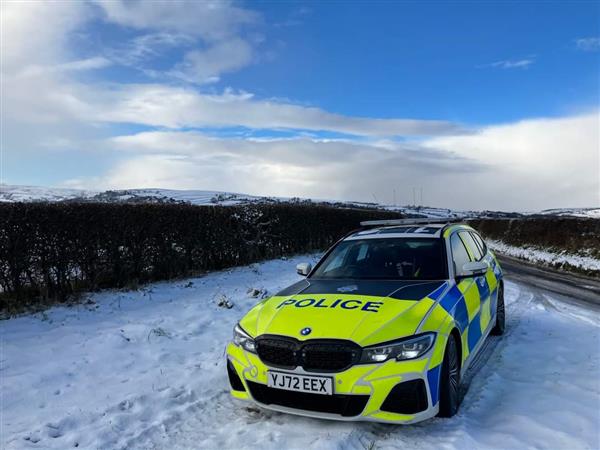|
||||
|
||||
|
|
||||
|
Good evening Wintry weather is snow-joke ❄️ A yellow warning for snow and ice is in place across much of the North of England, including York and North Yorkshire. It is worth remembering that any journeys you made this morning may be very different to those you make tomorrow – for example if you drive to work, your commute could be more challenging. If you are out and about tomorrow, please consider the following: Before you set off ✔️Allow extra time for your journey ✔️Check ahead for any road closures or delays ✔️Pack warm clothing, a blanket and torch, in case you become stranded. A flask with a hot drink, some water and snack are also a good idea. ✔️Keep your phone charged and carry a fully-charged batter pack ✔️Ensure you fully remove any snow or ice from your vehicle before you set off ✔️Check your wipers and switch off any auto-wiper control before turning on the ignition ✔️Check your tyres for adequate tread – poor tyres will not grip when driving on snow and ice ✔️Wear comfortable, dry and suitable footwear – be prepared in case you need to leave your vehicle quickly ✔️Pack sunglasses as these can reduce the glare of low winter sun on the snow ✔️Download the What3Words location app in case you need to know exactly where you are While driving ✔️Accelerate gently, use low revs and change up to a higher gear as quickly as possibly ✔️Move off in second gear as this will help reduce wheel slip ✔️Maintain a safe stopping distance from the vehicle in front, leaving as much as 10 times the normal recommended gap ✔️If travelling uphill, use a low gear and avoid braking unless necessary, make sure you leave plenty of room between you and the car in front ✔️When approaching a bend, break before you start to turn the steering wheel. If your car does lose grip try to stay calm, take your foot off the accelerator and make sure your wheels are pointing in the direction you want to go in ✔️If you do skid, steer gently into it – keep your hands on the steering wheel and do not stamp your foot on the brake ✔️When driving in heavy snow, make sure you use your dipped headlights. Don’t rely on daytime running lights as they do not always put your rear lights on ✔️If visibility drops below 100m, use your fog lights – but remember to turn them off when the visibility improves ✔️If the road has not been gritted, take extra care when driving in the wheel-tracks of other vehicles as compressed snow is likely to be more icy than fresh snow ✔️Those who live or work in areas which are prone to high snowfall may benefit from purchasing winter tyres, snow chains or snow socks There may be disruption to other modes of transport too, so it is worth checking ahead before you begin your journey. If you are walking near or crossing roads, please be aware road users may not be able to stop as quickly as usual and their visibility may be reduced. Power cuts and loss of utilities are more likely to happen in adverse weather conditions, so it is important to prepare for this too. Here are some simple tips to do this: ✔️Keep a torch and spare batteries at home ✔️Have blankets and warm clothing to hand ✔️Keep your mobile phone charged and any battery packs you may have ✔️Turn off any appliances which should not be left unattended when switched on, such as cookers and microwaves – you never know when then power may be switched back on ✔️Some people may wish to leave a light switched on so they know when the power has come back on ✔️Check on any elderly or vulnerable neighbours or relatives Please stay warm, stay safe - and remember (in the nicest possible way!) we hope you don’t need us, but if you do, we are only one call away.
| ||||
Reply to this message | ||||
|
||||
|
|
|






